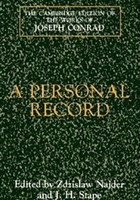
第34章
The casual quotation,which had suggested itself out of a poem full of merit,leads me to remark that in the conception of a purely spectacular universe,where inspiration of every sort has a rational existence,the artist of every kind finds a natural place;and among them the poet as the seer par excellence.Even the writer of prose,who in his less noble and more toilsome task should be a man with the steeled heart,is worthy of a place,providing he looks on with undimmed eyes and keeps laughter out of his voice,let who will laugh or cry.Yes!Even he,the prose artist of fiction,which after all is but truth often dragged out of a well and clothed in the painted robe of imagined phrases--even he has his place among kings,demagogues,priests,charlatans,dukes,giraffes,cabinet ministers,Fabians,bricklayers,apostles,ants,scientists,Kafirs,soldiers,sailors,elephants,lawyers,dandies,microbes,and constellations of a universe whose amazing spectacle is a moral end in itself.
Here I perceive (without speaking offense)the reader assuming a subtle expression,as if the cat were out of the bag.I take the novelist's freedom to observe the reader's mind formulating the exclamation:"That's it!The fellow talks pro domo."
Indeed it was not the intention!When I shouldered the bag I was not aware of the cat inside.But,after all,why not?The fair courtyards of the House of Art are thronged by many humble retainers.And there is no retainer so devoted as he who is allowed to sit on the doorstep.The fellows who have got inside are apt to think too much of themselves.This last remark,I beg to state,is not malicious within the definition of the law of libel.It's fair comment on a matter of public interest.But never mind.Pro domo.So be it.For his house tant que vous voudrez.And yet in truth I was by no means anxious to justify my existence.The attempt would have been not only needless and absurd,but almost inconceivable,in a purely spectacular universe,where no such disagreeable necessity can possibly arise.It is sufficient for me to say (and I am saying it at some length in these pages):J'ai vecu.I have existed,obscure among the wonders and terrors of my time,as the Abbe Sieyes,the original utterer of the quoted words,had managed to exist through the violences,the crimes,and the enthusiasms of the French Revolution.J'ai vecu,as I apprehend most of us manage to exist,missing all along the varied forms of destruction by a hair's-breadth,saving my body,that's clear,and perhaps my soul also,but not without some damage here and there to the fine edge of my conscience,that heirloom of the ages,of the race,of the group,of the family,colourable and plastic,fashioned by the words,the looks,the acts,and even by the silences and abstentions surrounding one's childhood;tinged in a complete scheme of delicate shades and crude colours by the inherited traditions,beliefs,or prejudices--unaccountable,despotic,persuasive,and often,in its texture,romantic.
And often romantic!.The matter in hand,however,is to keep these reminiscences from turning into confessions,a form of literary activity discredited by Jean Jacques Rousseau on account of the extreme thoroughness he brought to the work of justifying his own existence;for that such was his purpose is palpably,even grossly,visible to an unprejudiced eye.But then,you see,the man was not a writer of fiction.He was an artless moralist,as is clearly demonstrated by his anniversaries being celebrated with marked emphasis by the heirs of the French Revolution,which was not a political movement at all,but a great outburst of morality.He had no imagination,as the most casual perusal of "Emile"will prove.He was no novelist,whose first virtue is the exact understanding of the limits traced by the reality of his time to the play of his invention.Inspiration comes from the earth,which has a past,a history,a future,not from the cold and immutable heaven.A writer of imaginative prose (even more than any other sort of artist)stands confessed in his works.His conscience,his deeper sense of things,lawful and unlawful,gives him his attitude before the world.Indeed,everyone who puts pen to paper for the reading of strangers (unless a moralist,who,generally speaking,has no conscience except the one he is at pains to produce for the use of others) can speak of nothing else.It is M.Anatole France,the most eloquent and just of French prose-writers,who says that we must recognize at last that,"failing the resolution to hold our peace,we can only talk of ourselves."
This remark,if I remember rightly,was made in the course of a sparring match with the late Ferdinand Brunetiere over the principles and rules of literary criticism.As was fitting for a man to whom we owe the memorable saying,"The good critic is he who relates the adventures of his soul among masterpieces,"M.
Anatole France maintained that there were no rules and no principles.And that may be very true.Rules,principles,and standards die and vanish every day.Perhaps they are all dead and vanished by this time.These,if ever,are the brave,free days of destroyed landmarks,while the ingenious minds are busy inventing the forms of the new beacons which,it is consoling to think,will be set up presently in the old places.But what is interesting to a writer is the possession of an inward certitude that literary criticism will never die,for man (so variously defined)is,before everything else,a critical animal.And as long as distinguished minds are ready to treat it in the spirit of high adventure literary criticism shall appeal to us with all the charm and wisdom of a well-told tale of personal experience.